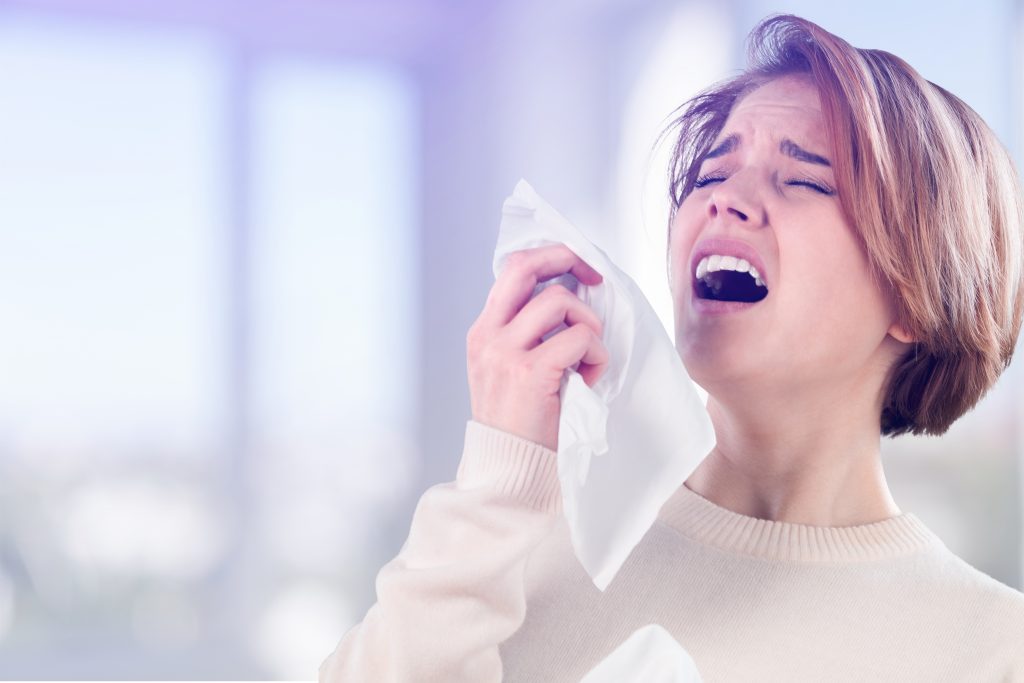5 Types of People Who Should Get a Maltese

If you’re thinking of getting a dog, chances are that dog shedding is one of your main concerns. And if you’ve researched about dog breeds that don’t shed you’ve probably heard about the Maltese. So, do Maltese dogs shed or is it true that shedding is a non-issue with this breed?
Maltese dogs indeed don’t shed. Or, at the very least, shed very little – every animal with hair will leave some hair behind, humans included.
The reason for that is that unlike most other dog breeds, Maltese dogs have no undercoat. In essence – Maltese dogs have hair, not fur.
In fact, it’s a common saying that among all dog breeds, the Maltese’s hair is the most similar to our own. So, if you’re worried about shedding, Maltese is definitely one of the breeds I’d recommend.
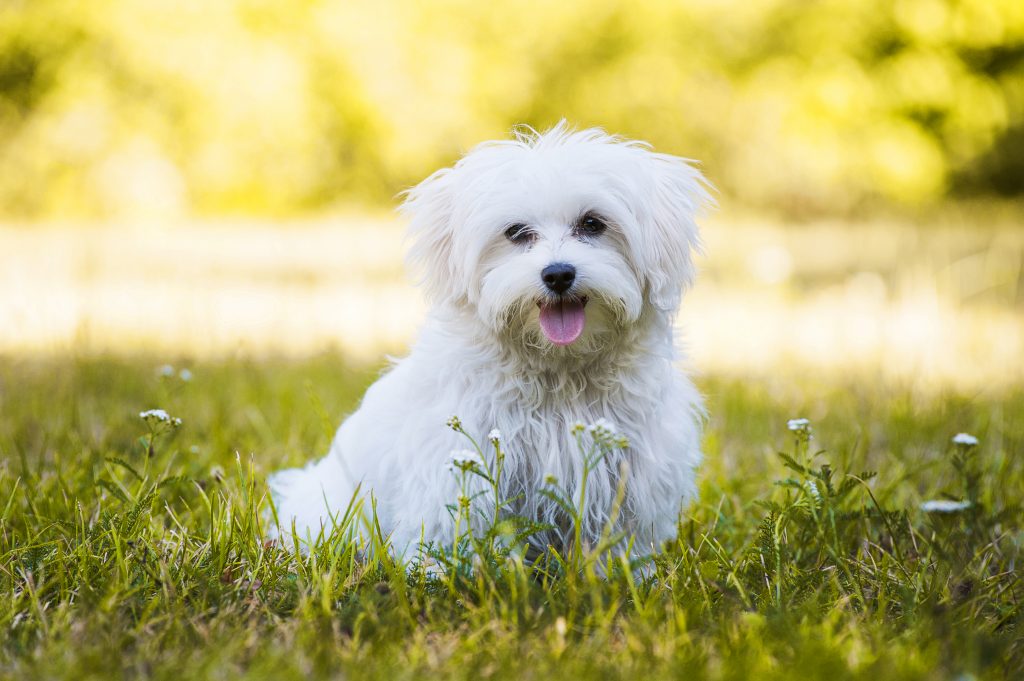
Why is it important for a dog to not shed too much?
There are two main reasons why you might want a dog that doesn’t shed much:
1. To reduce and prevent the risk of pet allergies. A lot of people have either mild or severe pet allergies. It’s not uncommon for the milder cases to not even realize it until they get a dog. That’s because spending an hour or two with a dog may not always trigger your allergies but living with a dog most certainly will.
Dog breeds that don’t shed help with this problem quite a lot. Such a breed, together with good maintenance and frequent cleaning can allow even people with severe allergies to share their home with a dog. Of course, consulting with a medical professional first is always advisable.
2. For convenience’s sake. Whether you have allergies or not, having all your furniture and floors covered with a constant layer of dog hair is just not fun. Some of the breeds that shed more can force you to vacuum your home almost daily and you’ll still have a lot of dog hair around you. Non-shedding breeds like the Maltese bring no such problems with them.
3. The lack of an undercoat and the reduced shedding helps to reduce the odor. The smell of a dog is another thing that puts people off from getting a canine pet. The Maltese, like most other breeds that don’t shed, have a much more manageable odor.
Is the Maltese’s hair easy to groom and take care of?
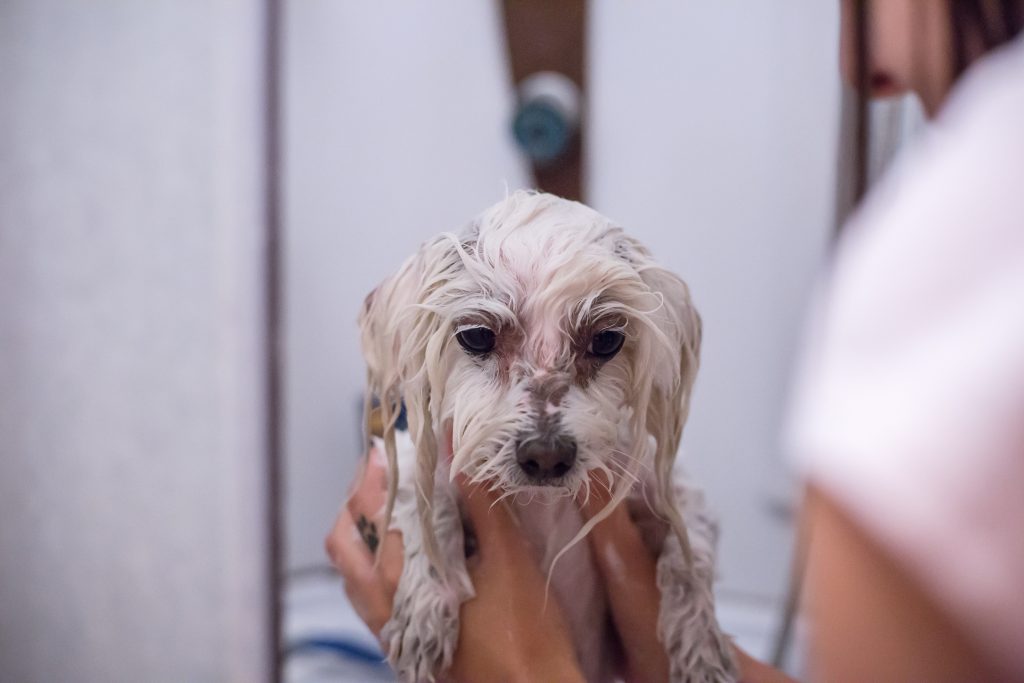
The natural conclusion a lot of people draw from all this is that Maltese dogs are easy to groom. That’s not true, however.
The fact that they don’t have undercoats and don’t shed much doesn’t mean that they are low-maintenance dogs. Particularly if you want your dog to be in good health and to have a beautiful coat – which is a given as far as I’m concerned.
To maintain the gorgeous silky white coat of a Maltese you’ll have to clean, brush, and bathe them regularly. The long hairs of the Maltese easily gather dirt and get stained. What’s more, they also mat very easily.
This means that you’ll have to brush and comb your Maltese’s coat daily. It also means that you’ll want to limit your dog’s exposure to mud, dirt, and other such undesirables. Maintaining a good and clean home goes a long way to helping with that but you can be certain that your dog will still find ways to get dirty.
If your Maltese has developed mats it’s important to be gentle with your fingers and diligent with the detangler spray and coat conditioning oil. Once you’ve carefully removed the mat, use the end tooth of your comb to properly separate and loosen the individual hairs that were affected.
Bathing is something you’ll probably want to do every week with your Maltese. Training the dog to like bathing is very important when it’s still a pup, as this will make your life much easier later on. If the Maltese’s dog has mats, however, it’s important to remove them before bathing and without water – mats often get even tighter when wet.
Does getting a Maltese guarantee that you won’t have allergy problems?
Unfortunately no. Contrary to popular opinion, what causes our dog allergies aren’t the dog hairs themselves but the dog’s saliva, dandruff, and urine – that’s where the allergens and allergy-causing proteins are. The dog hairs themselves are just the delivery mechanism that spreads the allergens all over our homes.
In other words, dogs that don’t shed much are not technically “hypoallergenic” – they still produce allergens. However, these allergens won’t fly around all the time because there’ll be much less dog hair to carry them around.
Many studies have been done on this topic too. For example, one study by the Henry Ford Hospital (HFH) in Detroit measured the environmental allergen levels in the houses of 173 dog owners for a month after a newborn baby was introduced there. In the words of Christine Cole Johnson, chair of HFH’s Department of Public Health Sciences and senior author of the study:
“We found no scientific basis to the claim hypoallergenic dogs have less allergen,” she said_. “Based on previous allergy studies conducted here at Henry Ford, exposure to a dog early in life provides protection against dog allergy development_,” Cole Johnson also added. “But the idea that you can buy a certain breed of dog and think it will cause less allergy problems for a person already dog-allergic is not borne out by our study.”
What else can you do to ensure that your dog allergies won’t be triggered?
Getting a dog from a breed that doesn’t shed much is a great first step but as I mentioned – it’s not a guarantee that your allergies won’t bother you. So, here are some more things you might want to do as well:
- Brush and comb your dog daily to further reduce the number of hairs it will shed.
- Bathe your dog every week to prevent dandruff and to remove dirt and saliva from its coat.
- Use a powerful and effective vacuum cleaner in your home regularly to remove the allergens that might be floating in the air and in your household dust.
- Consider getting a High-efficiency particulate air (HEPA) filter and cleaner. Using such a cleaner in your living room and bedroom can greatly reduce the number of allergens in the air.
- Don’t sleep with the dog. Train your dog not to sleep on your bed – both during the night with you and throughout the day.
- Consult with one or more medical professionals for how best to remedy your allergies while still keeping your dog.
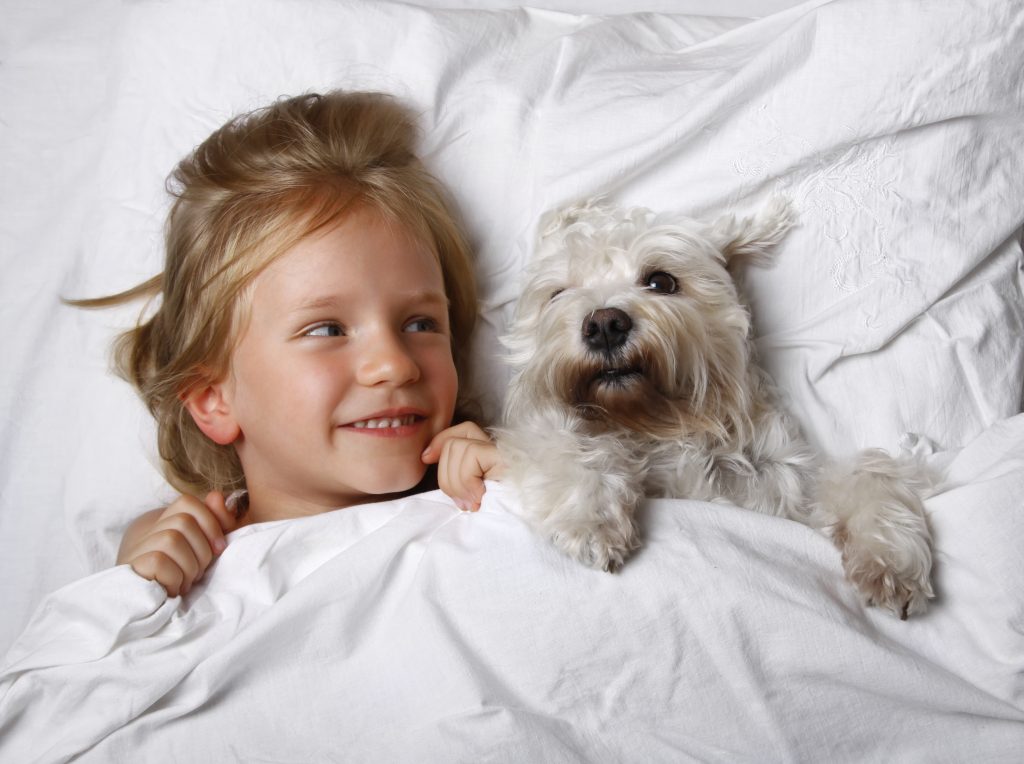
What does it mean if a Maltese dog sheds more than it should?
As you research about Maltese dogs and shedding, you may see that there are still many people who complain that their Maltese dogs are shedding too much. Or, maybe, you’ve noticed the same with your Maltese pup.
This doesn’t mean that your dog isn’t a pure breed, however, nor that “the internet has lied to you”. Instead, there are several more probable reasons why your Maltese might be shedding more than it should:
- The dog is overly stressed out. There are many possible things that can bring stress to a dog – the introduction of a new pet or a baby into the household, a recent move to a new home, the loss of a loved one, separation anxiety, and more.
- The dog has certain nutritional deficiencies. In other words – a poor diet. Like all other dogs, Maltese need high-quality and nutritious food that is grain-free and corn-free.
There could also be a lack of certain vitamins or minerals even if the main food source of the dog is of generally good quality. In these situations, it’s best to consult with a veterinary expert. - Unfortunately, there could also be an underlying medical condition that causes your dog to shed too much. This too is a reason to consult with a veterinary expert as soon as possible.
What other dog breeds don’t shed?
Of course, the Maltese are not the only dog breed that doesn’t shed and is often called “Hypoallergenic”. In fact, there are a couple of dog breeds that are very close to the Maltese in much more than just that one regard.
Bichon
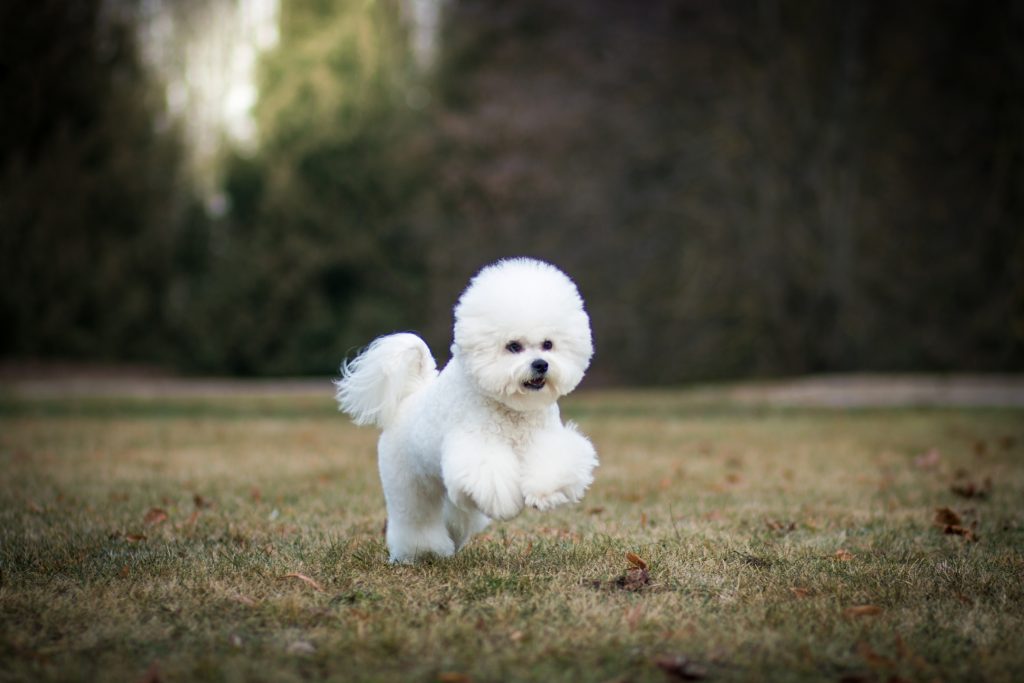
The Bichon dog breeds group also includes the Bichon Frise, the Bolognese, as well as the Maltese and several other sub-breeds. All are characterized by low shedding due to a lack of undercoat, as well as a small stature, and a playful and social nature.
And if you’re looking for a non-shedding dog breed that’s even more different physically and behaviorally from the Maltese, here are several more suggestions:
The Boston Terrier
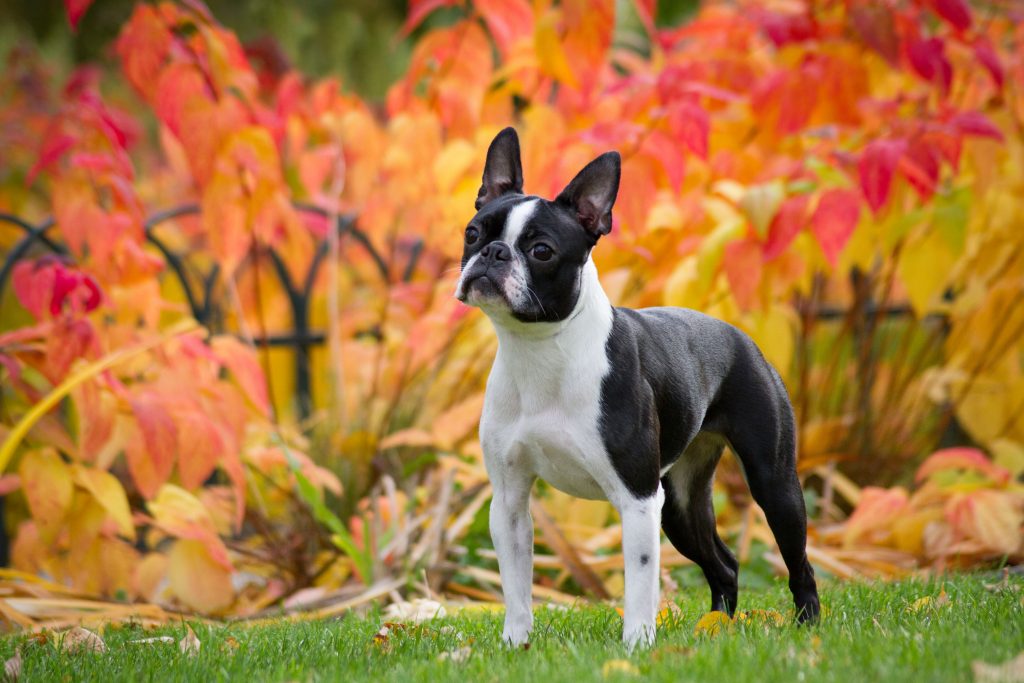
The Boston Terrier is a short-haired dog breed that has a minimal odor, doesn’t bark too often, and is great with children when trained properly.
Yorkshire Terrier
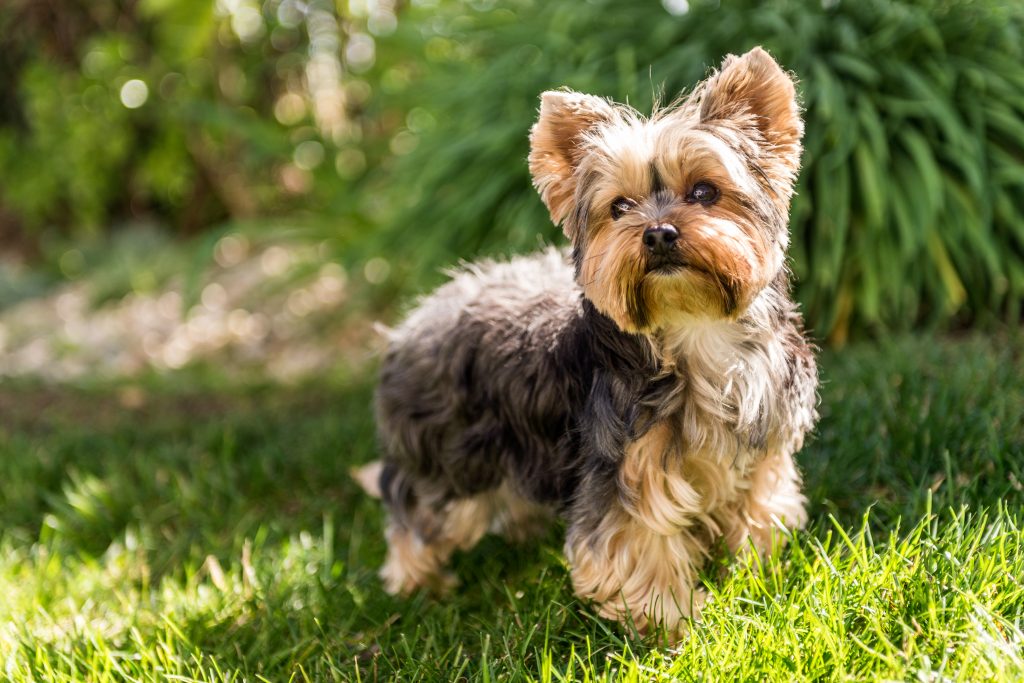
Yorkshire Terrier is another terrier breed that sheds very rarely despite being so fluffy. As with the Maltese, their gorgeous white coat needs quite a bit of maintenance as well.
Water dog breeds
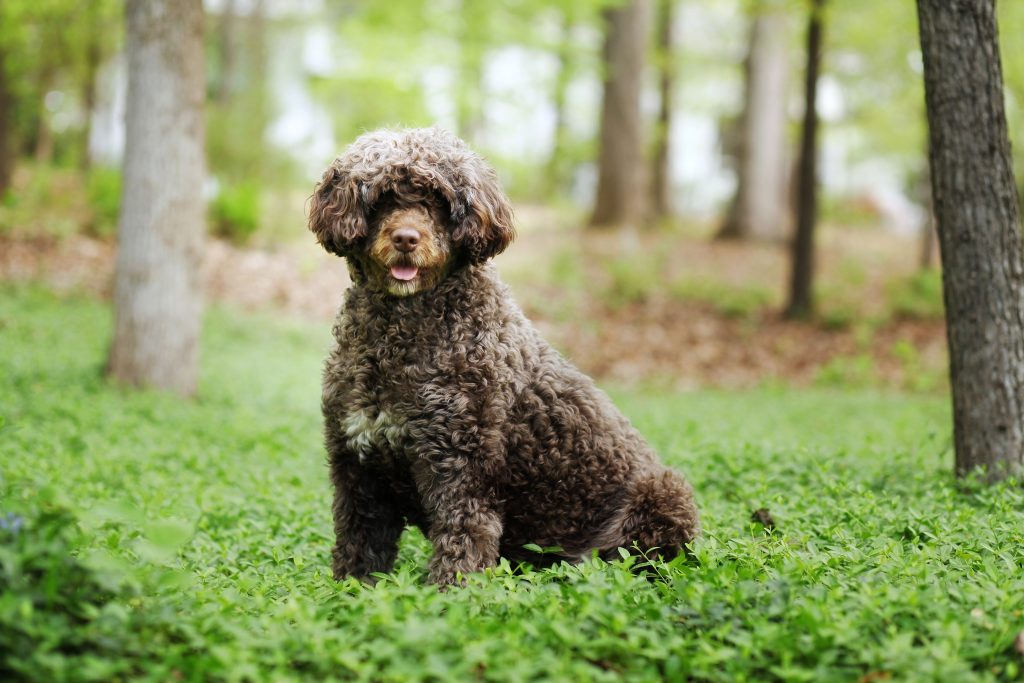
Most water dog breeds also don’t shed much. Their hair still requires a fair bit of maintenance but they are as close to being hypoallergenic as the Maltese. Plus, they are among the most intelligent and social breeds.
Greyhound
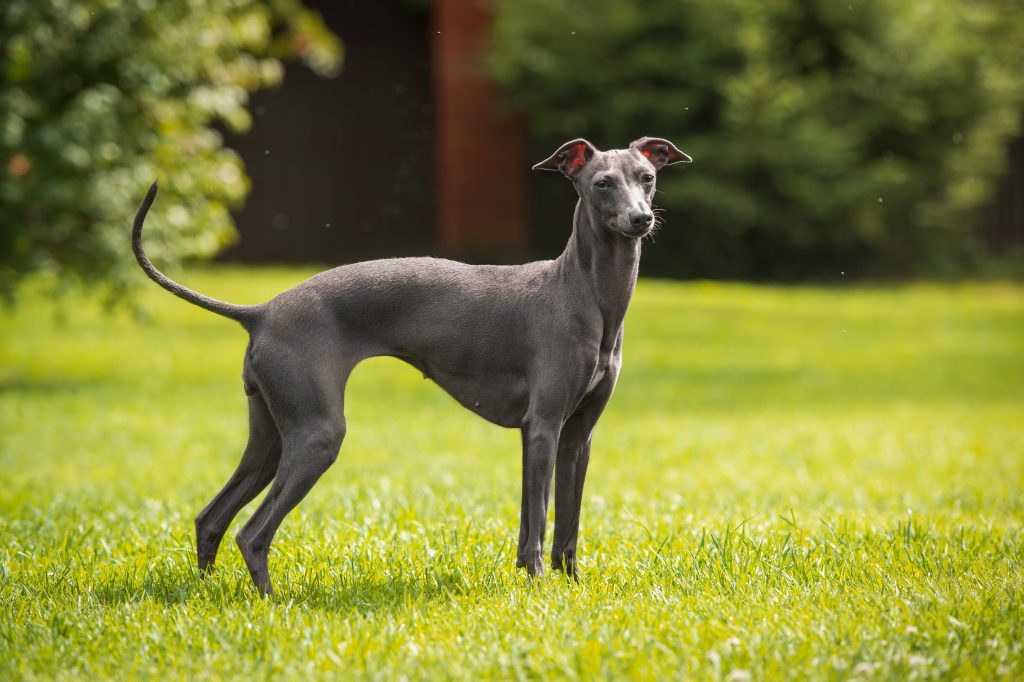
The Greyhound’s hair is so short that they almost don’t shed anything. They are a very difficult pet to take care of, however, as they require a lot of exercise and a very accommodative living environment.
